We may not have the course you’re looking for. If you enquire or give us a call on +44 1344 203 999 and speak to our training experts, we may still be able to help with your training requirements.
Training Outcomes Within Your Budget!
We ensure quality, budget-alignment, and timely delivery by our expert instructors.
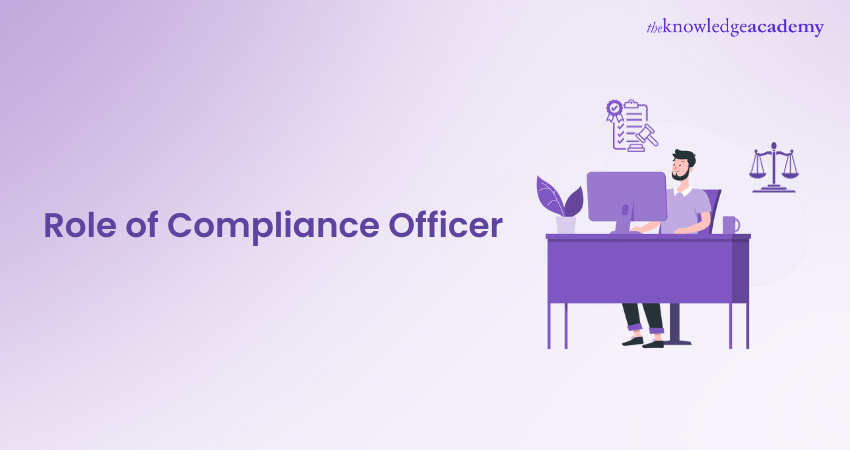
A seasoned navigator is needed to brave the constantly evolving waves of regulations and compliance. A Compliance Officer fills that particular role as a mix of an investigator, a strategist, and an ethical compass. They safeguard organisations from legal pitfalls and reputational risks. But these professionals don't merely enforce rules; they shape a culture of accountability and integrity. If you have your mind set on exploring this profession, consider this blog your trusty ally. Read on and delve into the dynamic Role of the Compliance Officer in protecting organisations.
Table of Contents
1) Understanding the Role of a Compliance Officer
2) Compliance Officer Duties and Responsibilities
3) Skills and Qualities of an Effective Compliance Officer
4) How Much Does a Compliance Officer Earn?
5) How to Become a Compliance Officer?
6) The Challenges of the Compliance Officer in Performing Their Role
7) Conclusion
Understanding the Role of a Compliance Officer
Compliance Officer duties are the ethical compass guiding an organisation through the complexities of regulations and ethical standards. As the name implies, their fundamental duty is to ensure that the company's actions remain within the boundaries set by the law and ethical principles. Their responsibilities encompass diligent scrutiny of the organisation's activities, meticulous assessment, and the proactive implementation of measures harmonising with regulatory demands and industry best practices.
Some of the most crucial roles of a Compliance Officer are as follows:
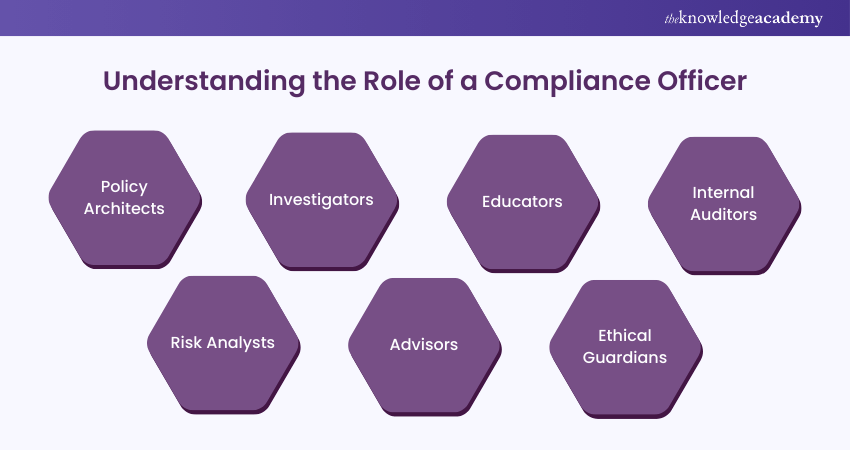
Some of the most crucial roles of a Compliance Officer are as follows:
Policy Architects
Compliance Officers serve as Policy Architects, crafting comprehensive Compliance policies that deal with the complexities of regulatory frameworks. By continuously drafting these documents, they provide clear guidelines to employees, outlining expected behaviour and ensuring the organisation's activities stay within legal and ethical boundaries. Their adeptness in translating complex regulations into actionable policies aids in creating a culture of transparency and integrity.
Risk Analysts
Risk Assessment is a pivotal duty of a Compliance Officer. They meticulously evaluate potential risks and vulnerabilities inherent in business operations. They develop strategies to effectively mitigate Compliance-related threats by delving into these complexities. Their analytical prowess enables them to foresee potential pitfalls, empowering the organisation to proactively address these risks and avoid possible legal or reputational consequences.
Investigators
When instances of non-Compliance arise, Compliance Officers step into the role of Investigators. They delve deep into the issue, identifying its root causes and conducting thorough analyses. Based on the findings, they implement corrective measures to prevent recurrence. This proactive approach ensures that deviations from Compliance are addressed swiftly, minimising potential negative impacts.
Advisors
Compliance Officers provide valuable guidance to management regarding Compliance-related decisions and strategies. Their expertise aids in shaping policies and procedures that align with regulatory demands. By offering insights on potential Compliance implications, they enable informed strategic decision-making, ensuring Compliance remains a significant part of the organisation's overall direction.
Compliance Officer’s Responsibilities
Compliance Officers ensure that companies follow the rules. They make sure organisations do things legally and ethically. They create rules, watch for problems, and reduce risks. Compliance Officer's roles and responsibilities helps companies be open, responsible, and honest. Some of the key responsibilities of a Compliance Officer are as follows:
Developing and Implementing Policies
Compliance Officer’s duties are charged with the critical task of creating and putting into action comprehensive Compliance policies. These policies act as guidelines that dictate ethical behaviour and ensure the organisation's alignment with legal regulations. By crafting and implementing these policies, Compliance Officers lay the groundwork for a culture of lawful conduct and integrity within the company.
Monitoring and Assessment
Monitoring forms a core responsibility of Compliance Officers. They consistently track the organisation's activities to confirm adherence to regulations and ethical standards. This involves regular assessments, internal audits, and vigilant scrutiny to identify potential non-Compliance areas. The meticulous monitoring process provides insights into operational practices and enables early detection of any deviations from established norms.
Gain insight into the different levels of assessing organisational Cybersecurity governance in our Security Governance and Compliance Training - Sign up now!
Training and Education
Compliance Officers play an instrumental role in educating employees about Compliance expectations. They organise training sessions to familiarise staff with the organisation's Compliance policies, codes of conduct, and industry-specific regulations. By imparting this knowledge, Compliance Officers empower employees to make informed decisions and take actions that align with the organisation's ethical framework.
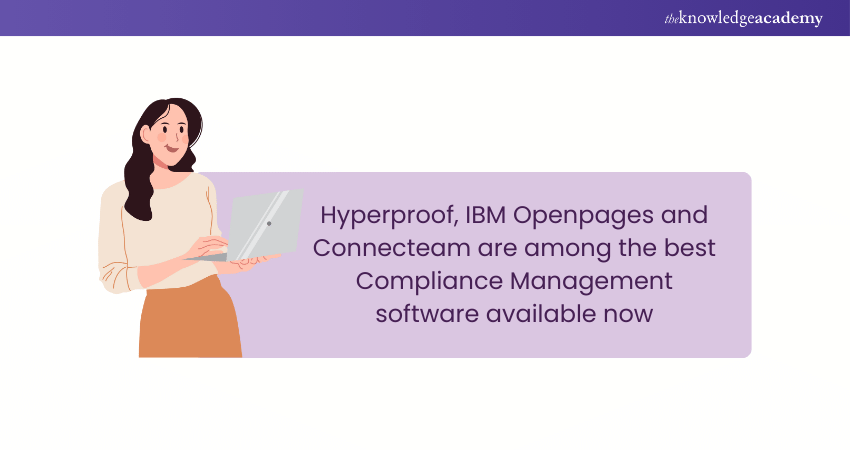
Risk Assessment and Mitigation
Identifying and mitigating risks is crucial to a Compliance Officer funtions. They assess the organisation's processes, operations, and external factors to determine potential vulnerabilities. Based on this assessment, they strategies and implement measures to minimise the impact of risks, safeguarding the organisation's reputation and financial stability.
Reporting and Communication
Compliance Officers are the bridge between internal stakeholders and external authorities. They regularly communicate the organisation's Compliance status to senior management and relevant stakeholders. Effective reporting ensures transparency, keeps all parties informed about Compliance efforts, and helps make well-informed decisions.
Responding to Non-Compliance
In instances of non-Compliance, Compliance Officers initiate prompt action. They investigate the root causes of the breach, analyse the extent of the violation, and recommend corrective measures. Their proactive approach ensures that non-Compliance is swiftly addressed, preventing reoccurrence and minimising potential negative consequences.
Skills and Qualities of an Effective Compliance Officer
The Role of a Compliance Officer necessitates a unique blend of skills and inherent qualities that contribute to their effectiveness in upholding ethical standards and ensuring legal adherence within an organisation. Here are some of the most essential skills of a Compliance Officer:
Analytical and Critical Thinking
The ability to analyse intricate regulatory frameworks and assess potential Compliance gaps is paramount. Effective Compliance Officers exhibit sharp analytical skills, enabling them to identify areas of vulnerability and proactively devise strategies to address them. Critical thinking empowers them to craft comprehensive solutions that anticipate potential challenges.
Strong Communication Skills
Communication is key for Compliance Officers, who must translate complex regulations into clear directives for employees at all levels. Effective communication fosters understanding, ensuring Compliance policies are disseminated effectively and embraced by the workforce.
Attention to Detail
The role demands a meticulous eye for detail. Effective Compliance Officers scrutinise policies, procedures, and operations to identify even the most minute deviations from Compliance standards. This attention to detail is instrumental in preventing oversights that could lead to non-Compliance.
Ethical Integrity
Exemplifying ethical behaviour is non-negotiable for a Compliance Officer. Effective officers uphold moral principles and act as role models for ethical conduct. Their integrity resonates throughout the organisation, reinforcing the importance of Compliance at all levels.
Empower your organisation’s success with our Corporate Governance Training – Sign up now!
How Much Does a Compliance Officer Earn?
The greater their professional experience, the higher their salary. The role demands elevated standards of integrity, exceptional communication skills, and managerial expertise. Consequently, it is uncommon for companies to appoint Compliance Officers to junior positions.
Here’s a breakdown of the average annual salary earned by a Compliance Officer across three major regions:
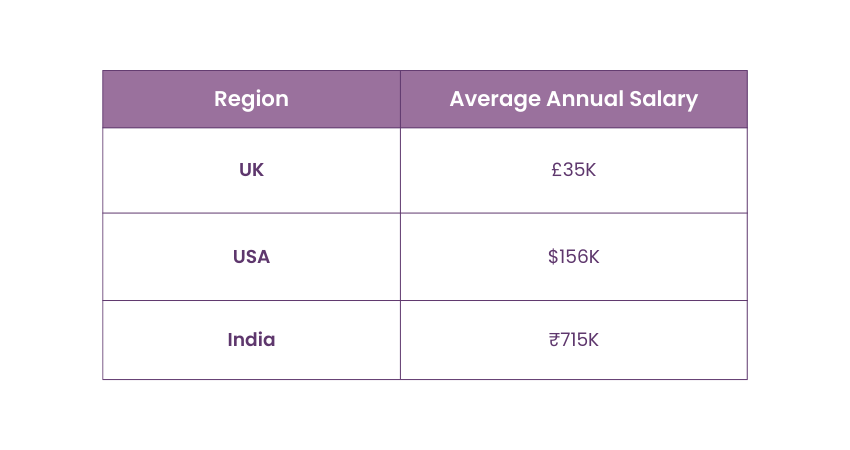
How to Become a Compliance Officer?
Becoming a Compliance Officer typically involves a combination of education, relevant experience, and obtaining specific skills. The following provides a step-by-step guide on how to become a Compliance Officer:
1) Educational Background: Start by obtaining a bachelor's degree in a relevant field, such as business, finance, law, or a discipline pertinent to your target industry. Some senior roles may require advanced degrees, such as a Master's or juris doctor.
2) Gain Relevant Experience: Acquire practical experience in Risk Management, auditing, legal compliance, or regulatory affairs. Seek internships or entry-level positions within legal or regulatory departments to gain hands-on experience.
3) Develop Core Skills: Hone essential skills, including attention to detail, analytical thinking, problem-solving, and effective communication. Familiarise yourself with pertinent laws, regulations, and industry standards.
4) Pursue Certifications: Consider obtaining certifications like Certified Regulatory Compliance Manager (CRCM) or Certified Compliance & Ethics Professional (CCEP). Industry-specific certifications can enhance your credibility and expertise.
5) Networking: Attend industry conferences and seminars and join professional associations related to compliance. Networking provides insights into industry trends and job opportunities and facilitates connections with experienced professionals.
6) Stay Informed: Read industry publications regularly, participate in webinars, and attend workshops to stay aligned with changes in laws and regulations. You must stay informed regarding emerging trends and best practices in the compliance field.
7) Advanced Education: To deepen your expertise, consider pursuing advanced degrees or additional certifications. Advanced education can enhance your competitiveness for senior compliance roles.
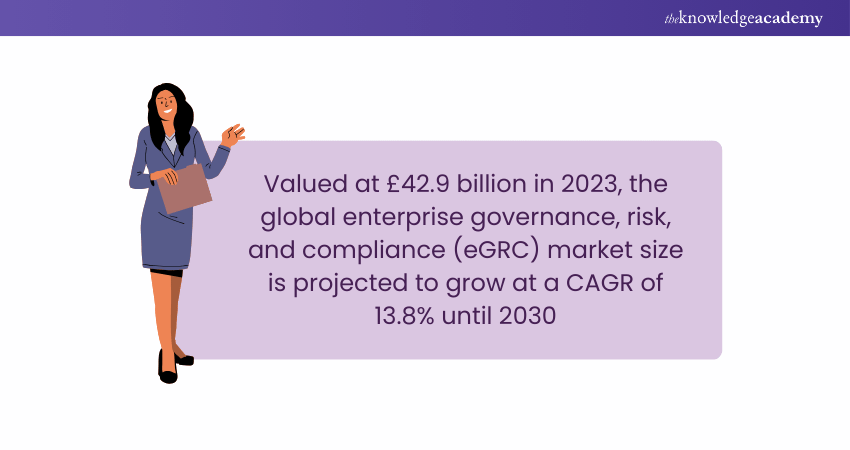
The Challenges of the Compliance Officer in Performing Their Role
Here are some of the challenges that Compliance Officers face in their role:
1) Regulatory Environment: One of the primary challenges a compliance officer might experience is navigating the Complex Regulatory Environment. With fresh regulations being introduced and existing ones evolving rapidly, these professionals must stay updated on these changes and ensure the organisations remain compliant.
2) Criminal Activities: With the growing complexity of financial crimes, such as money laundering, financial crimes are becoming increasingly sophisticated daily. Since COVID-19, the dependency on digital systems and cybercrime has increased multifold. Compliance officers have to work closely with IT and Cybersecurity teams to implement strong controls and protocols.
3) Budgeting: Compliance departments often face resource constraints in terms of staff, budget, and technology infrastructure. This limits their ability to address regulatory challenges.
4) Integrating New Technologies: As more customers grow comfortable performing online transactions, compliance functions increasingly depend on new technology for reporting, monitoring, and managing regulatory compliance. However, integrating these technologies can be challenging and needs significant training and infrastructure investment.
Conclusion
In conclusion, a Compliance Officer is the backbone of an organisation’s ethical and regulatory framework. Their role is significant in today’s complex business landscape, from safeguarding operations to strengthening trust. As organisations grow, the demand for skilled Compliance Officers grows as well. So, understanding the Role of Compliance Officer as outlined in this blog is essential for anyone looking for a career path in it.
Unlock the Power of Compliance; register for our Compliance Training!
Frequently Asked Questions

A Compliance Officer is responsible for:
a) Identifying and managing regulatory risk.
b) Ensuring internal controls measure and manage risks.
c) Safeguarding ethical integrity and legal conformity.
d) Assessing and managing a company's regulatory risks.
e) Advising management on compliance matters.

A Compliance Officer's daily responsibilities often include:
a) Monitoring compliance.
b) Reviewing compliance policies and procedures.
c) Conducting compliance training sessions for employees to raise awareness and prevent violations.
d) Performing regular audits.
e) Responding to any compliance-related concerns.
f) Liaison Work.

The Knowledge Academy takes global learning to new heights, offering over 30,000 online courses across 490+ locations in 220 countries. This expansive reach ensures accessibility and convenience for learners worldwide.
Alongside our diverse Online Course Catalogue, encompassing 19 major categories, we go the extra mile by providing a plethora of free educational Online Resources like News updates, Blogs, videos, webinars, and interview questions. Tailoring learning experiences further, professionals can maximise value with customisable Course Bundles of TKA.

The Knowledge Academy’s Knowledge Pass, a prepaid voucher, adds another layer of flexibility, allowing course bookings over a 12-month period. Join us on a journey where education knows no bounds.

The Knowledge Academy offers various Compliance Courses, including Corporate Governance Course and Security Governance and Compliance and Compliance Training. These courses cater to different skill levels, providing comprehensive insights into various Compliance Frameworks.
Our ISO & Compliance Blogs cover a range of topics related to ISO and Compliance, offering valuable resources, best practices, and industry insights. Whether you are a beginner or looking to advance your Compliance skills, The Knowledge Academy's diverse courses and informative blogs have you covered.
Upcoming ISO & Compliance Resources Batches & Dates
Date
 PCI DSS Implementer
PCI DSS Implementer
Thu 23rd Jan 2025
Thu 6th Feb 2025
Thu 3rd Apr 2025
Thu 5th Jun 2025
Thu 7th Aug 2025
Thu 2nd Oct 2025
Thu 4th Dec 2025







 Top Rated Course
Top Rated Course



 If you wish to make any changes to your course, please
If you wish to make any changes to your course, please


